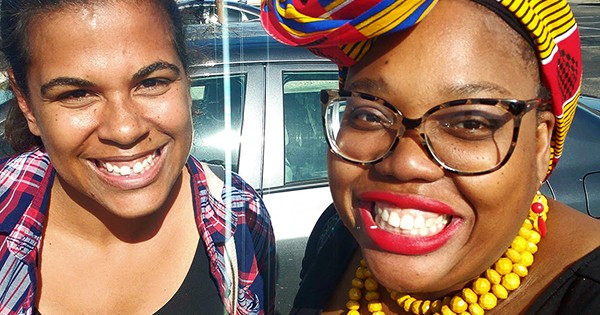Crystal Egli and Parker McMullen-Bushman bring passion, experiences as Black women to a fundraising effort to provide a collective voice and online resource for marginalized communities

Green Book ideators Crystal Egli and Parker McMullen-Bushman launch fundraising efforts to create an inclusive online resource for Black Americans and other marginalized communities.
Denver, CO — Birdwatching. Barbecuing in a park. Browsing a store. Eating at a restaurant. These activities are framed as every day, fun and enjoyable activities for most, but these same activities can also become dangerous and deadly based solely on the color of your skin.This American reality is the impetus behind Crystal Egli and Parker McMullen-Bushman’s goal of creating a Digital Green Book for Black Americans to research and patronize businesses that champion inclusivity and provide welcoming environments both when traveling and managing the business of daily life.
Originally created by Victor H. Green in 1936 as a response to the issues faced by Black travelers, The Negro Motorist Green-Book provided a guide for Black readers nationwide identifying businesses available to Black travelers in the openly segregated South, safer locations in the more covertly segregated North and information to avoid “sundown towns” or the heavy presence of the Ku Klux Klan. The end of legal segregation brought the end of publishing the Green Book with the 1966-1967 issue, but the need for resources to help guide Black Americans to welcoming and inclusive places to spend their time and money has never ended.
“Historically, the Green Book was used to teach Black travelers how to navigate racism where it wasn’t clearly posted. It turns out, in 2020, we still need that,” says Egli. “Racism is so ingrained into us all that many individuals don’t even acknowledge to themselves that they are practicing racial bias. The Digital Green Book will hold businesses and public spaces accountable not only for their intent but for their impact.”
Egli and McMullen-Bushman are creating the Digital Green Book as a labor of love – and necessity – in providing a modern version of Victor H. Green’s guide. Both women are working mothers with full-time careers, so the project is being crowdfunded through a GoFundMe campaign to hire a developer, and will rely on crowdsourced information about inclusive businesses, upholding and reflecting the tradition of the original Green Book.
“We intend to seed the site at first with businesses that have a reputation for inclusion and businesses owned and operated by people from marginalized identities,” explains McMullen-Bushman. “Our ultimate goal is to have members of the community and businesses submit listings themselves. We want to have people who have visited those businesses give feedback and rank the business on certain attributes. When I interact in my daily life, whether it’s traveling or at home, I want to use businesses that I know respect me. I want to use my money to support businesses that have inclusion as a core business value. That’s what makes this digital Green book project so powerful. A collective voice being used for people to find safe spaces where they can feel comfortable and welcomed.”
While the Digital Green Book will focus initially on enhancing experiences for Black communities, Egli and McMullen-Bushman are also planning to include other underrepresented communities as the project grows.
“We understand that across the spectrum of diversity and marginalized groups, people of color at the intersection of identities often bear the brunt of negative impacts,” says McMullen-Bushman. “So if you are black and have a disability your negative impacts are compounded. If you are black and a trans woman you are at a higher risk of homelessness, violence, and death. We want this website to address that intersectionality so that all members of our communities can find safe spaces.”
As the women work to make their vision a reality through their fundraiser, they want to encourage donors and future users of the Digital Green Book to help improve and expand the goals for the website and planned future app.
“We want to let everyone know that this website will also be providing resources for businesses and organizations to help their spaces be more inclusive and welcoming,” says Egli. “We’re not planning to be in the position of tearing businesses down; that’s not what this is about. We want to hold businesses and spaces accountable, of course, but we also want to be here to help them be better. We will provide resources such as recommendations for professional trainers, book lists, film/video recommendations, and more to deliver on the goals and the promise of accessibility and inclusivity.”
To learn more about the goals of the Digital Green Book or to donate to the fundraiser, please visit the campaign’s GoFundMe page. For media requests, please email info@inclusivejourneys.com
